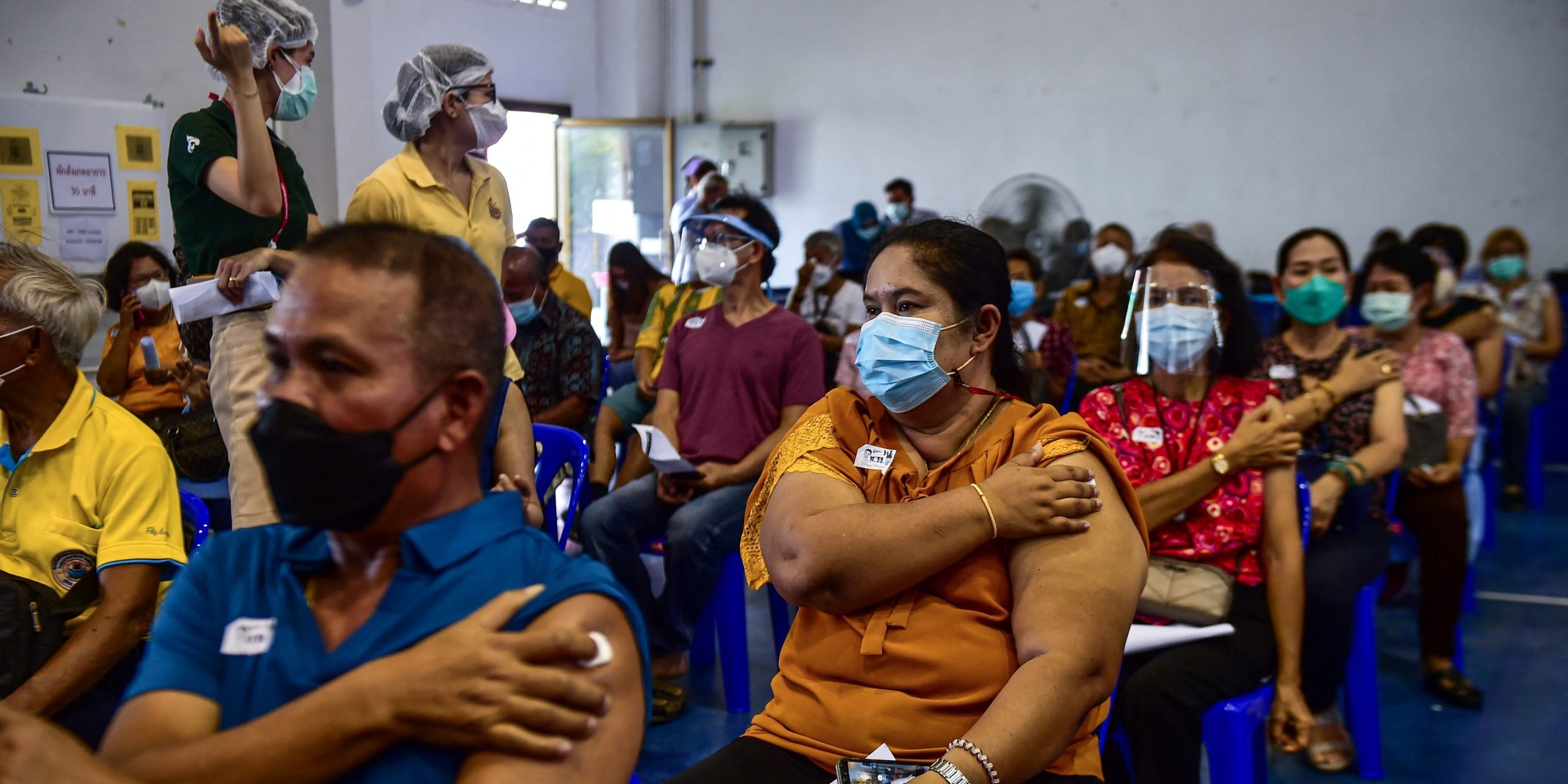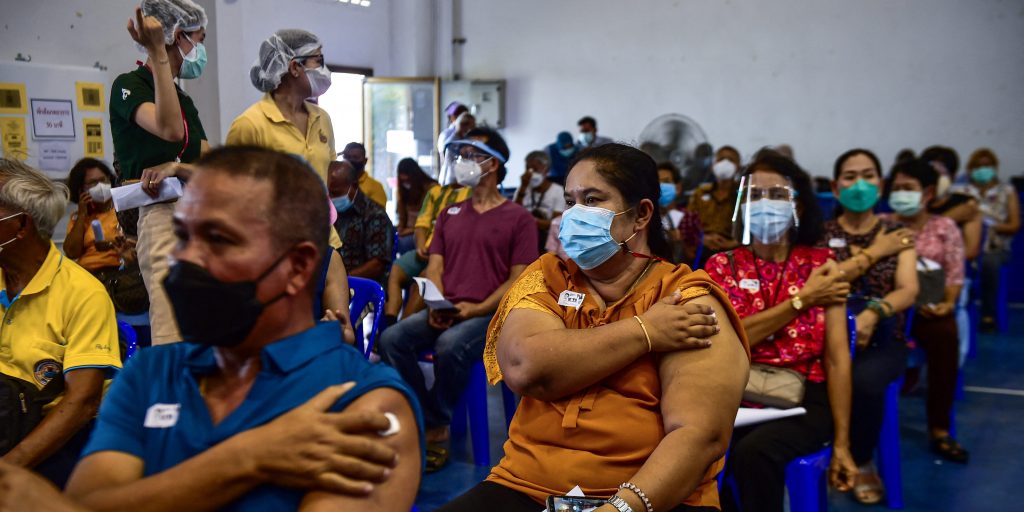
- Vaccinating the world would cost roughly $50 billion, according to the OECD's chief economist.
- That's less than a tenth of the extra profits US companies have made in 2021 thanks to the vaccine-fueled recovery.
- The sum could also be covered by the US's richest citizens or from its massive military budget.
Getting every human being vaccinated against COVID-19 would be expensive, but it would prevent further mutations like Omicron from developing and threatening the economic recovery — and life as we know it.
It would also cost just a fraction of corporate America's extra profits in 2021.
The emergence of the Omicron variant has governments doubling down on calls to get the whole world vaccinated, yet developing countries are still struggling to get shots in arms and put the pandemic behind them.
The price tag could be as low as $50 billion, Laurence Boone, chief economist at the Organization for Economic Co-operation and Development, said in a Wednesday interview on Bloomberg TV. The sum is "completely disproportionate" to the $10 trillion that Group of 20 countries have deployed in stimulus through the pandemic, she added.
It would also be a drop in the bucket for the US corporations that have benefitted from domestic vaccine rollouts. Corporate profits have grown by $577 billion in 2021 so far. Much of the gains have been driven by the US economic reopening, which began early in the year as vaccines were approved and distributed. Vaccination sparked a wave of spending as Americans unleashed pent-up demand, and those sales boosted companies' earnings.
If US corporations banded together, they could vaccinate the entire world with less than one-tenth of their extra profits from the year-to-date.
Even US companies' quarterly stock buybacks easily surpass the $50 billion cost. Companies in the S&P 500 are likely to spend more than $224 billion on share repurchase programs over the three months that ended in September, Reuters reported on November 2, citing data from S&P Dow Jones Indices. That would be a record high for quarterly buybacks and easily enough to vaccinate the world four times over.
The US government could easily swing the bill as well. The federal government is slated to spend more than $6 trillion in fiscal 2022, according to the White House's budget proposal. Cutting just a sliver from that total could pay for global vaccination.
For example, the House Armed Services Committee revealed in September plans to spend roughly $778 billion on the military in fiscal 2022. That's enough to vaccinate the world nearly 16 times over.
Even the $37.5 billion increase to military spending from last year's budget could cover three-quarters of a global vaccine drive.
The richest Americans could save the world on their own, too. The $50 billion price tag is roughly one-fourth of Jeff Bezos's net worth as of Wednesday afternoon, and only 16% of Elon Musk's wealth. The Tesla CEO's wealth has surged by $142 billion in 2021 so far. That could cover the vaccination cost and leave him with more than $90 billion left over.
Musk has already indicated he's open to spending big for humanitarian efforts. The chief executive said in October he would spend $6 billion to solve world hunger, as long as the World Food Programme could show its math and prove the amount would end the crisis. Musk hasn't made the donation yet.
Ponying up the cash would help remedy one of the biggest snags in the global recovery. The world economy has bounced back through 2021 as vaccination and reopening revives spending. Yet advanced countries have counted for the bulk of the recovery while emerging economies struggle to keep up. Helping these lagging countries is critical to bringing about a strong global economy, OECD Secretary-General Mathias Cormann said in a Wednesday statement.
"Keeping the recovery strong and on track will entail addressing a number of imbalances, but above all it will mean managing the health crisis through better international coordination, improving health systems and massively stepping up vaccination programmes worldwide," he said.
Yes, $50 billion is a difficult pile of cash to conceptualize for the average Americans. But there are plenty of avenues for scrounging up the cash, and a big one is the corporate profits that were enabled by the relatively successful US-based vaccine drive.
